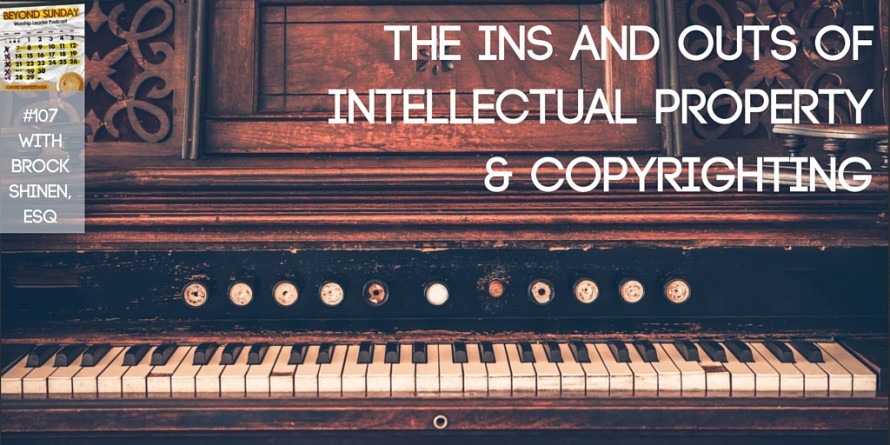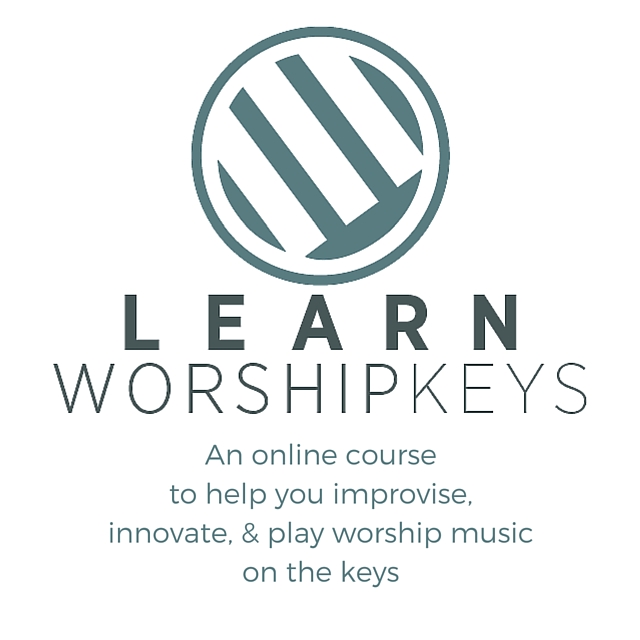
Podcast: Play in new window | Download
Subscribe: RSS
The priority is Jesus.” – Brock Shinen
One of the questions I receive the most is, “How do I go about copyrighting the songs I’m writing for my local church.” Well, I’m not the expert. But my guest on today’s show is. Brock Shinen is an Intellectual Property attorney who works with artists, churches, authors, and organizations surrounding this whole daunting concept.
I love Brock for this expertise and also for his love for Jesus. He works with Jesus Culture as one of his clients and is committed to the Kingdom of God.
If you are a songwriter, you need to listen to this and share it with 4,000 of your songwriting friends 🙂
Enjoy!
Click to Listen
Podcast: Play in new window | Download
Subscribe: RSS
Show Sponsor
Today’s podcast is brought to you by Learn Worship Keys, an online course to help you improvise, innovate, and play worship music on the keys in 3 months or less.
 Learn Worship Keys is a membership site with over 30 videos, expert interviews, and incredible bonuses.
Learn Worship Keys is a membership site with over 30 videos, expert interviews, and incredible bonuses.
If you’ve always wanted to play keys or learned classical music but always wanted to improv, this is for you.
Or if you’ve been looking for a resource to equip your keyboard players on how to play simply, navigate the software world, and make beautiful music, you need to check out Learn Worship Keys.
We already have dozens and dozens of students kicking the excuses and learning how to play. Will you be next? CLICK HERE to check out Learn Worship Keys.
In this Episode You’ll Hear More About:
- How to get things done as an entrepreneur.
- The pros & cons of self publishing and traditional publishing.
- How to come up with new ideas as a writer.
- Why it’s important to protect your songs.
- The steps you need to take to copyright your work as a solo artist.
- The steps you need to take to copyright your work as a church worship team.
- How to determine what writers should be paid.
- How to avoid legal issues with the IRS.
- How to pay royalties.
- Paying songwriters and paying artists.
- The importance of a social media strategy.
- The problem with emulation and mimicking.
- How to pursue more authenticity.
Resources Mentioned in this Episode:
- Website: The Law Office of Brock Shinen
- Website: Brock Shinen
- Course: Protect Your Creative Works with US Copyright Registration with Brock Shinen
- Podcast: Malcolm DuPlessis on Indigenous Worship, Celebrity Leadership, & an Honest Look at Modern Worship
- Website: The Lefsetz Letter
- Podcast: The Cognipop Podcast
- Email: brock@shinenlaw.com
- Twitter: @bbshinen
- Instagram: https://www.instagram.com/bbshinen/
Subscription Links
Thanks For Listening!
If you enjoyed this episode, please share it using the social media buttons you see at the bottom of the post. So helpful!
If you have an idea for a podcast you would like to see, a special guest you’d like to hear from, or a question for an upcoming episode, please email me. If you enjoyed the show, I would be so appreciative if you would rate it on iTunes and write a brief review. That helps me so much! Thanks.
And thanks to Brock for sharing with us!
Question: What’s your biggest takeaway from this interview with Brock? Always love to hear from you! You can leave a comment by clicking here.
[ois skin=”Beyond Sunday 2″]
That was a truly insightful episode. I especially enjoyed the latter half, with Brock’s take on authenticity and what that looks like from church to church.
Brock’s advice — ahem, information 🙂 — given throughout seems entirely reasonable given his starting point: that you must copyright to monetize, and must monetize to fund creation. I appreciate his apparent heart and willingness to help churches and songwriters navigate this complex intellectual property landscape.
I suppose my only real disappointment was that starting point. Perhaps due to time constraints or presuppositions about the audience, it was presented without real justification. Yes, to the extent that a copyright concept exists at all, songwriters should hold (defensibly) the copyright to the works they create. But it is not at all true that one must hold a copyright in order to monetize. The free and open source software community has demonstrated repeatedly and for decades now that you can build a solid business around so-called intellectual property that you do not hold. There’s no reason to believe that the model applied there cannot likewise apply to musicians, and, in fact, many artists are doing precisely that. Nor is it true that one must monetize in order to continue creating. (Sorry, artists … the larger part of the history of art simply doesn’t support that premise.)
We as worship songwriters need to examine our motives as we create art for God and His Church. How can we claim authorship and ownership over a song while simultaneously declaring that it was “inspired by God” or when its lyrics are largely just a remix of His Word (which, by the way, is in most of its commonly accessible forms and translations also works whose copyright is held by publishing companies). And how can we justify using our status as author/creator/owner to deny access to that work to others (because let’s face it: copyright licensing is more about who can’t use a work freely than who can), especially when we would almost certainly say that we wrote it “for God” or “for the Church” or as a vehicle of the Gospel (which begs to be spread freely!).
To be clear, I’m not faulting Brock for what was said or not said. The reality is that “I worked hard on writing and recording that song so I should get paid for it” is simply a statement that requires quite a bit more unpacking and evaluation than the average person cares to undertake, and there’s too much money at stake for many parties to perform that evaluation honestly.